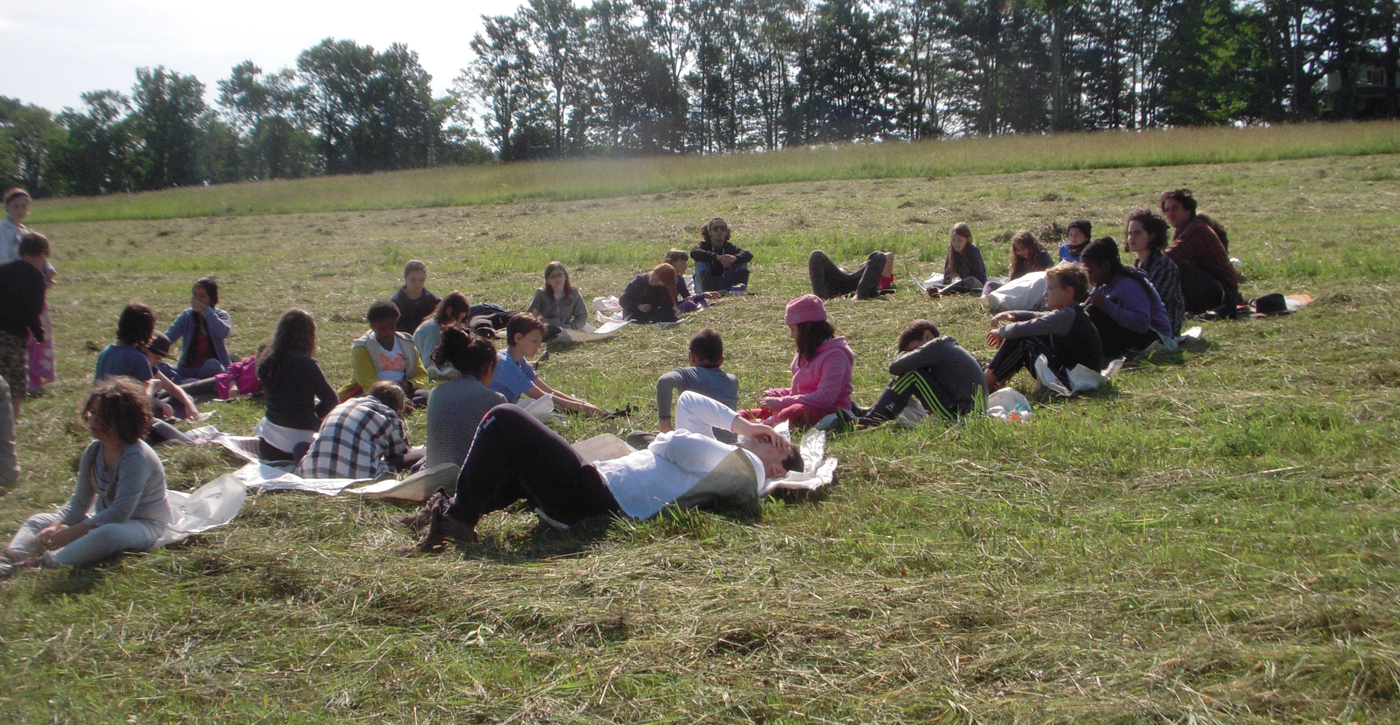Philadelphia summers are known for their unpleasant humidity and heat. Last year, we hit record-breaking temperatures over 100 on many days. This sultry weather is upon us again, and this time I find myself reflecting on how it compares to the summers I spent as a child in the same region, when, without benefit of air conditioning or even a fan, we managed to get through the days happily enough with only a wading pool to cool us off. I remember sweltering at night only a few times throughout my childhood in the 50s; now, 50 years later, it’s a frequent occurrence. Recently I’ve had the opportunity to view the new Al Gore film, An Inconvenient Truth. With patient precision, Al Gore presents extremely convincing scientific research that traces the impact of population growth and related fossil fuel consumption in a way that is simultaneously alarming and reassuring—if we choose to do something now about the problem. I strongly recommend that everyone, but especially those of us who live in the United States, see this film.
As I look at the feature articles we’ve selected for this issue, a thread emerges for me. There is the human-wrought tragedy of the explosion of two atomic bombs, looked at from the perspective of survivors of those blasts, 61 years later ("Hiroshima Cherry Blossoms and Nagasaki Azaleas, 2006" p.6). During those 61 years, the world has understood, sometimes seemingly only marginally, that to engage in a nuclear exchange would mean the end of life as we know it on our planet. We have managed to avert that disaster, and by doing so, have proven that, imperfect though we and our governing systems are, we can avoid destruction of humanity by choices made around the globe, even when we harbor great fear of other peoples and nations.
In "Louisiana Journal" (p.13) and "It’s Not About a Hurricane" (p.14), members of Goose Creek (Va.) Meeting and our own art director, Barbara Benton, offer reflections on the devastation wrought by Hurricane Katrina in the fall of 2005. Like many before them, they write of the unspeakable, unimaginable destruction they observed in their trips to Louisiana to volunteer help in the clean-up efforts. They also write about the resilience of the human spirit and how far simple kindness can go in putting things right.
The magnitude of this disaster was intensified by the issues of global warming, a fact clearly explained in An Inconvenient Truth. A Category One hurricane when Katrina hit Florida, hovering over the warm waters in the Gulf of Mexico caused it to pick up velocity and moisture, escalating to Category Five over the Gulf, hitting Louisiana as a Category Three storm, the costliest and one of the deadliest storms in U.S. history. The nearly yearlong aftermath of relief snafus, with one government agency finger-pointing at the next, gives a horrible example of what can happen when there is no political will to remedy a great tragedy. I find myself wondering about the destruction of property in Louisiana and how it compares to what happened to Hiroshima and Nagasaki.
In "Standing for Miss Rosa" (p.17), author Gerri Williams reminds us what the act of one humble but persistent and determined person can do. Rosa Parks chose to refuse to sit at the back of the bus at a time when events were converging to create a movement that would make major changes in U.S. culture. I’m old enough to remember the days of civil rights marches, little girls going to school with armed Federal escorts, and school bussing to achieve integration. We’ve got a long way to go on race relations, but it’s also true that we’ve come quite a distance. Change is possible—in fact, inevitable.
What may be needed in our collective near future, in order to continue to have a future, is individual awareness and courage, political responsiveness, technical ingenuity—and a lot of simple kindness. None of those things are beyond us, but the time to begin is now.


